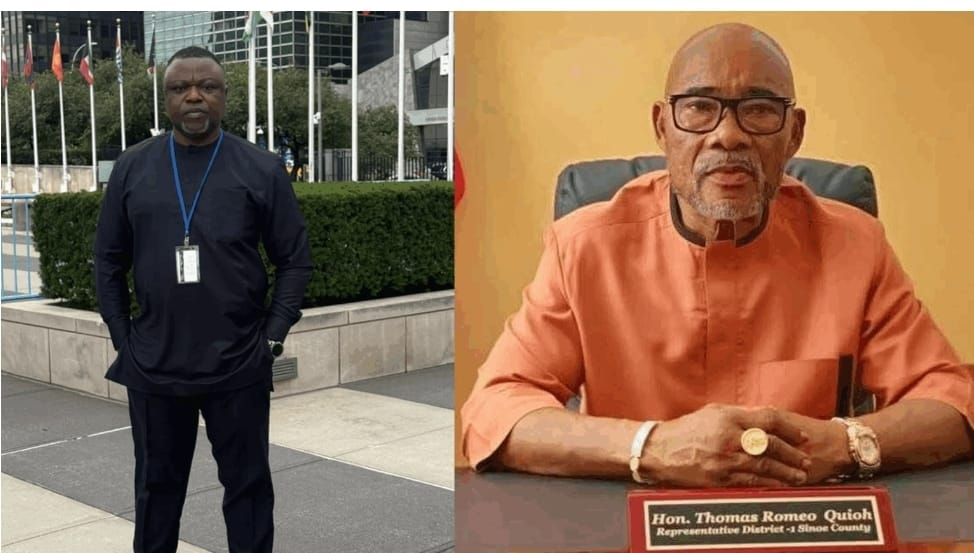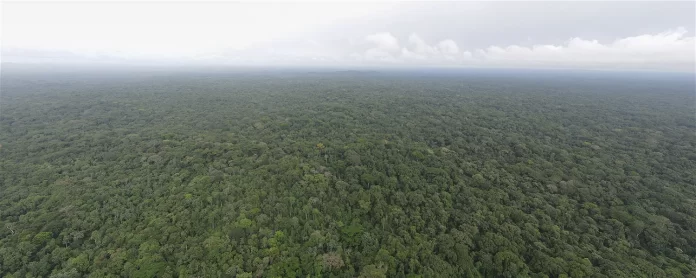MONROVIA, Liberia — The Society for the Conservation of Nature of Liberia (SCNL) has strongly condemned a recent proposal seeking to degazette Sapo National Park, warning that such a move would undermine Liberia’s international environmental obligations and jeopardize decades of conservation progress.
The statement made by Representative Thomas Romeo Quiah of Sinoe County District #1, calls for the removal of Sapo National Park’s protected status. If enacted, the proposal would strip the park of its legal safeguards, opening the door to potential exploitation of one of West Africa’s last remaining intact rainforests.
In a public statement, SCNL acknowledged the socioeconomic challenges faced by forest-edge communities but cautioned against policy decisions that could reverse hard-won conservation gains and destabilize Liberia’s ecological and economic future.
“Degazetting Sapo National Park would dismantle over 30 years of conservation efforts,” the organization stated. “Established in 1983, Sapo is not only Liberia’s first and largest protected area—it is a globally recognized biodiversity hotspot and a vital carbon reservoir.”
International Commitments at Risk
SCNL emphasized that Liberia’s pledge under the Kunming-Montreal Global Biodiversity Framework to protect 30% of its terrestrial and marine ecosystems by 2030—the “30×30” target—would be directly compromised by the proposed degazettement. The group also cited Liberia’s National Forestry Reform Law of 2006, which mandates that 30% of forest land be designated as protected areas.

“Sapo National Park is central to Liberia’s 30×30 National Action Plan,” SCNL noted. “Its unique ecological composition and scale make it irreplaceable.”
The organization warned that removing the park’s protected status could erode Liberia’s credibility on the global stage and restrict access to critical climate and biodiversity financing from partners such as the Global Environment Facility, Green Climate Fund, and bilateral donors including the United States, European Union, United Kingdom, and Norway.
Climate and Biodiversity Implications
Under the Paris Agreement, Liberia has committed to reducing greenhouse gas emissions by 64% by 2030. SCNL stressed that protected areas like Sapo are essential to meeting these targets, particularly through efforts to reduce deforestation, curb emissions from land conversion, and restore degraded ecosystems.
“Degazettement would severely impair Liberia’s ability to meet its climate goals,” the group said. “It risks triggering the withdrawal of support from multilateral and bilateral partners.”
SCNL also highlighted Liberia’s obligations under the Convention on Biological Diversity (CBD) and the Convention on International Trade in Endangered Species (CITES), which require the protection of endangered species and their habitats. Sapo National Park is home to several endemic and threatened species, including the pygmy hippopotamus and western chimpanzees, and boasts one of the highest concentrations of mammal species globally.
Call to Action
The organization urged lawmakers, government authorities, and the Liberian public to reject any proposal to degazette the park, advocating instead for strengthened environmental governance and sustainable development strategies.
“Environmental protection and economic development are not mutually exclusive,” SCNL asserted. “They must be pursued together, strategically and responsibly.”
SCNL recommended increased government funding for protected area management, including ranger recruitment, anti-poaching enforcement, and ecological monitoring. The group also called for accelerated REDD+ readiness and implementation to unlock carbon finance for community development and forest conservation.
“By becoming REDD+ compliant, Liberia can access sustainable funding that supports both livelihoods and long-term environmental stewardship,” the statement concluded.






















